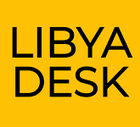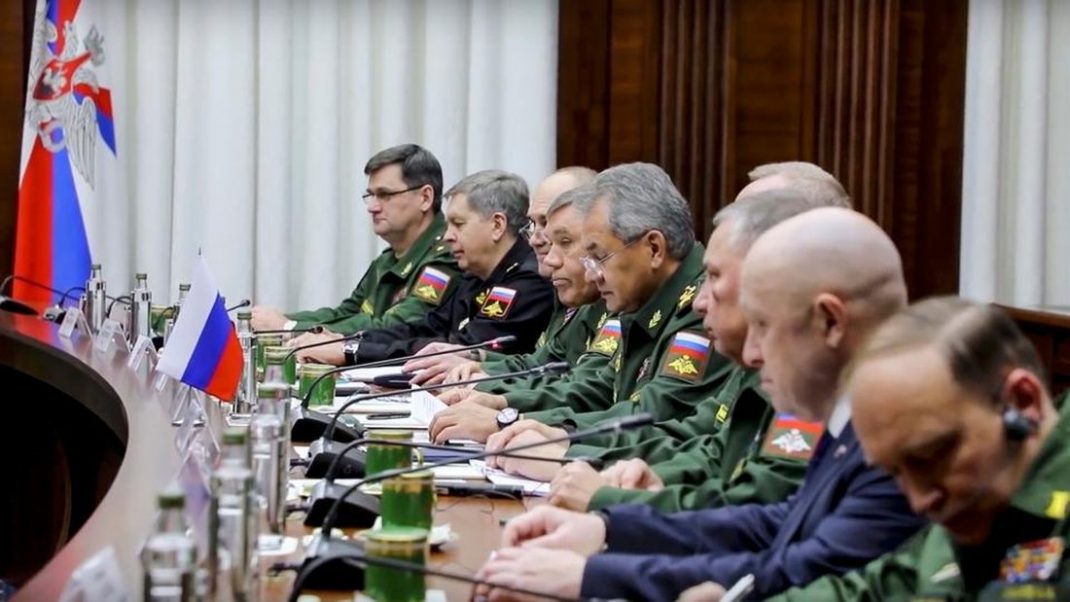The Backdrop to Russia’s Operations in the Mediterranean
 Over the past decade, Russia’s return to Arab affairs has raised speculation around the virtual enactment of Peter the Great’s dream to access the warm waters of the Mediterranean.
Over the past decade, Russia’s return to Arab affairs has raised speculation around the virtual enactment of Peter the Great’s dream to access the warm waters of the Mediterranean.
.
PART TWO
Russia’s Libya policy in flux
For Russia, Haftar has represented an asset in an uncertain Libyan environment.
From 2015 onwards, Lavrov highlighted the commonalities of his country’s approach to the Libyan crisis with Egypt and the UAE — two Arab countries that are amongst Haftar’s staunchest supporters.
These common approaches have undeniably involved some -albeit more limited on the part of Russia- financial, diplomatic and military support to the LNA.
In addition to having Russian backing for his capture of Southern oil fields in February 2019, Haftar benefitted from Moscow’s equivocal position regarding his April 2019 onslaught on Tripoli.
In fact, Lavrov has consistently refused to “unilaterally” put the blame on Haftar for Libya’s renewed crisis and even agreed to block a UNSC statement in June denouncing Haftar’s destabilising campaign.
This is understandable when considering that Russian officials have put significant effort to court Haftar (who was invited several times to Moscow), thus making them reluctant to dispose of a potential asset.
During one such visit to Russia in November 2018, Haftar even met with a key agent of Russian military involvement in Libya, namely Evgeny Prigozhin.
Prigozhin heads a private military company called Wagner Group through which Moscow has benefitted from oligarch-funded military advice throughout Africa and parts of the Middle East, thus gaining access to natural resources or strengthening diplomatic relations with struggling political regimes.
According to several sources, the Russian private military company has increased its activities in Libya, mainly — but not exclusively — supporting Haftar through military advisors whose primary role is to use the technology that Libyans are not trained to operate, for instance locating Turkish drones and machinery in GNA territory and transmitting the information for airstrikes.
However, Russian presence has been exaggerated by both Libyan and international media outlets.
Firstly, it is important to note that Russian PMCs have been involved in Libya’s East for years now — consulting, training and demining.
Moreover, according to our sources, there should not be more than 100 such military operatives in Libya today, most of whom joined the Tripoli operation around August when the LNA lost Gharyan.
Claims that hundreds of Russians are involved in the conflict and present in the South of the country are not only overblown but also serve specific partisan purposes.
In fact, the GNA is heavily invested in the narrative of Russian pre-eminence in Libya — using millions of dollars in public funds to pay for lobbying contracts in the US in an attempt to win American resources and support.
Likewise, by posturing as a strongman against terrorism and promising lucrative oil contracts, Haftar has not only established himself as a singular contact for Moscow but has also manipulated Russian support to his own advantage, hoping to use it as a bargaining chip to raise his stature on the world stage and elicit support from powers aiming to compete with Moscow — notably, the US.
In many ways, earlier talk of Wagner Group’s presence in Libya dating back to April 2019 was widely fabricated by the LNA to give its campaign against Tripoli the appearance of international support and attempt to sway foreign powers to back Haftar.
Over time, Moscow took notice of Haftar’s opportunism and ambiguity — which is one of the reasons Russia has refrained from providing him with the additional support that could have overcome the GNA’s growing Turkish arsenal.
In fact, there are many points of contention between the Field Marshal and his Russian backers.
Not only does Russia accuse him of not delivering on promises of oil contracts and plans to establish a submarine base in the East, the Kremlin also suspects that Haftar never intended to fulfil his promises as he was holding off for a potentially greater partner such as the US.
The growing annoyance felt by Russia has been verified by leaked documents from Wagner Group, which testify to Russia’s view that Haftar is incompetent and unable to capture the capital.
In fact, as the Tripoli campaign drags on, Russia has given increasing attention to portraying an image of neutrality in order to manoeuvre the vagaries of Libya’s conflict.
To avoid the total alienation of GNA officials, Russia has avoided high-level meetings with Haftar and has refused to reinforce the Field Marshal’s rhetoric.
Indeed, Lev Dengov, the head of Russia’s ‘Libya Contact Group’ has even rejected Haftar’s description of the offensive as a “liberation campaign” against “terrorists” occupying Tripoli.
Haftar, therefore, should not be confused as Russia’s safe bet in Libya – like other international actors Moscow remains uncertain of what, exactly, a Haftar-dominated Libya would look like – but his existence allows Russia to assert its role as a potential powerbroker capable of de-escalating tensions.
It also serves the secondary purpose of keeping the GNA on its toes, so that Moscow has leverage over the Tripoli-based government.
Nevertheless, Haftar is still the man closest to ruling Libya and maintaining strong contacts with him reflects the pragmatic foreign policy of Russia, which has also understood that Libyans are giving way to a growing nationalist rhetoric and rejecting the role of the international community, both sentiments that are aptly harvested by the LNA.
To build on this rising domestic trend, Moscow could push forward with a plan to take advantage of its unique relationship with Saif al-Islam Gaddafi and bring him closer to Haftar.
The Russians believe that the two men, in addition to a third personality acting as a balancer, could exert enough domestic support to eventually rule over Libya.
However, whether Khalifa Haftar agrees to allow Saif al-Islam to enter the political arena -when the latter could rob him of his popularity- remains to be seen.
Ultimately, Russia is trying to prevent Libya from being governed by a puppet regime whose economic and political interests are uniquely directed towards the West and whose survival depends on the good-will of regional states such as Turkey and the UAE.
An independent-minded Libyan regime would be more amenable to deal with Russia and alleviate the country’s concerns that it will always be secondary to the US in the eyes of local leaders.
Russia’s endgame
Russia’s key to success in the Middle East has been its consistency and firmness in its position, the best example of which can be seen in Syria where Moscow has supported its long-time ally Bashar al-Assad with broadly the same talking points since 2011.
With a legitimate president (at least in the legalistic sense) Russia’s game in Syria has been relatively easy in that it officially supported a state actor, thus strengthening its global position as a defender of state sovereignty.
In Libya, however, where the state is not represented by a clear and unique actor, Russia’s positioning is fluctuating and therefore more fragile.
Unlike Syria, there is no clear-cut legitimate government whose sovereignty needs to be defended, nor is there an obvious Western -and, more importantly, American- push to support either side of the warring parties.
This is why our review of Russian involvement in the post-2011 Libya does not provide an assessment of a definite and localised strategy on the part of Moscow but rather an insight to a series of tactical moves that ensure Russia is not left behind in Libya’s balance of power.
Russian actions are likely to further vacillate between the GNA, LNA and disparate actors like Saif Al Islam Gaddafi depending on which side achieves more support on the ground.
Regardless, between contacting Saif Gaddafi, inviting Haftar on a public visit to Moscow on a Russian aircraft carrier, and claiming that Sarraj seeks military cooperation, the Kremlin has showed it is well-equipped to use Libya as a political chip to pick on the US and a means to bolster its leverage in world affairs.
However, Russian influence in Libya should not be overstated as Moscow can hardly overstretch itself and is entangled in other more strategic conflicts where it enjoys first-hand leverage.
In terms of interests, Libya could be likened to Iraq: a conflict-ridden oil-rich state in which Russia sees limited but beneficial oil and arms contracts.
More importantly, Russia sees in Libya a place where it can advance its brand as a balance to Western powers and an apt crisis manager who can diplomatically mediate between various sides of a conflict (except terror groups).
In a way, in Russia’s view, Libya is more important for its international repercussions than its local dynamics.
The Libyan conflict allows Russia to advance its vision of a polycentric world order where Moscow sides with non-Western powers -such as Egypt and the UAE- to resolve the negative effects of Western disregard of international law through unlawful military interventions.
In stark contrast with its vastly unlawful operations in Georgia and Ukraine, the Middle East and African conflicts have given Moscow the opportunity to recreate the image it once paraded during Soviet times.
Russia’s opposition to Western intervention gives it an anti-colonial aura whilst its costly support to Bashar Al Assad lends it clout as a champion of the UN Charter’s principles on sovereignty.
Armed with this tremendous soft power giving it legitimacy in its mediating and power-broking role across Africa and the Middle East, Russia is sure to have an important role in devising Libya’s post-civil war realities.
Nonetheless, this role is highly unlikely to be translated into more military presence; Russian lawmakers such as Dmitri Peskov remain strongly opposed to any “excessive Russian interference” in Libyan affairs.
This is a stance that sits well with Vladimir Putin, whose forte in international politics has been more in avoiding responsibility than taking positions that could be liable to future complications.
__________




